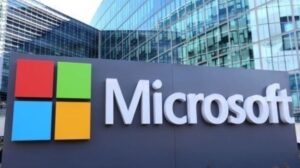Telecom
Cautious Optimism over NATCOM’s Take over of NITEL/MTel
Stakeholders in the information and communications technology (ICT) sector are cautiously optimistic about news of the ratification of NATCOM Consortium as preferred bidder for Nigerian Telecommunications (NITEL), and MTel, its mobile subsidiary.
Engr. Sam Adeleke, immediate past president, Internet Service Providers Association of Nigeria (ISPAN) and chief executive officer, Steineng Ltd, expressed reservation over the ownership of NATCOM and warned that “if government has any percentage share in the consortium, that it is doomed to die, but, if it 100 percent owned by private sector, it will succeed”
He said that management is the major tool that determines success of any organization and that telecommunications being driven by technology makes it scope for the future wide.
“The areas they can focus on include broadband services provision, cheaper calls, better quality of services and land line network among others,” he said.
Adeleke stated that the two most important assets of any telecommunications operator are frequency and subscriber base.
“Their major strategy should focus on how to acquire large subscriber base. Telecommunications business is a business of numbers if they want to succeed, they can do this by reviving the cable network and broadband services,” he added.
Also Deolu Ogunbanjo, president, National Association of Telecommunications Subscribers of Nigeria (NATCOMMS), said that reviving NITEL by NATCOM when the deal is completed will ensure broadening of the telecom market, citing the innovative services that Glo and Etisalat introduced when they launched which helped in deepening competition in the industry.
“Now that the industry has fully embraced co-location and operators selling off their towers to infrastructure services providers it will be easier for them to rollout GSM service. Reviving NITEL land line will be a major boost in the broadband penetration effort,” he stated.
Gbenga Adebayo, chairman, Association of Telecommunications Operators of Nigeria (ALTON), said that unless the new owners of NITEL are coming to the market with ideas that are not already in the market they will have to struggle to make impact.
He noted that reviving the land line is not going to be easy going by the fact that they are private investors that will go through approval process of ‘right of way’ as well as vandalization among others challenges associated with fixed network provision in the country.
“NITEL’s existing telecommunications infrastructure are obsolete and may not enhance their rollout plans,” he added.
It would be recalled that the National Council on Privatisation (NCP) has formally ratified the sales of the Nigerian Telecommunications Limited and its subsidiary Mobile Telecommunications Limited to NATCOM Consortium.
The ratification was given at the council’s fourth meeting, presided over by Vice President Namadi Sambo at the Presidential Villa, Abuja.
Telecom
Nigeria Has World’s Most Affordable Data Costs – GSMA
Nigeria has an average data cost of $0.38 per gigabyte, making her the most affordable countries globally and one of the cheapest in Africa for mobile data services.

United States averages $6 per gigabyte and South Africa with $1.77 per gigabyte rank the highest globally and in Africa respectively.
According to the GSMA, Nigerian data costs, as a percentage of Gross National Income (GNI) per capita, are among the lowest across Africa.
The reports by the body lends weight to telecom operators advocacy for tariff adjustments to address economic pressures threatening the sector’s sustainability.
The GSMA report, titled “The Role of Mobile Technology in Driving the Digital Economy in Nigeria,” highlighted Nigeria’s competitive data pricing, which is significantly lower than other African nations, such as Kenya ($0.59 per gigabyte), Ethiopia ($0.68 per gigabyte), and South Africa ($1.77 per gigabyte).
By contrast, the United States averages $6 per gigabyte, underscoring Nigeria’s advantage in offering cost-effective connectivity.
The cost of mobile data in Africa varies greatly by country and region.
Data costs can refer to the cost of mobile data or the cost of acquiring, maintaining, and using business data.
In 2023, the average cost of 1 GB of mobile data in Sub-Saharan Africa was $3.31, while in Northern Africa it was $0.86.
Telecommunications operators in Nigeria have been requesting some policy changes as well as tariff rebalancing to enable them deliver support to the Government’s digital economy objectives.
They have called for the simplification and improvement of the Right of Way (RoW) charging and administration process, harmonised across the country
According to them, all government authorities (at national and sub-national levels) should apply the national maximum RoW fee of N145 per/LSQM adopted by the National Economic Council (NEC) for the deployment of fibre across all states in Nigeria.
There should be a single point of contact in each state for the RoW application process while the duration for the approval process should be digitalised and limited to a maximum of one month.
Simplification and reduction of the tax burden on the mobile sector
On tariff, recall that the Association of Licensed Telecommunications Operators of Nigeria (ALTON) and the Association of Telecommunications Companies of Nigeria (ATCON) had urged the Nigerian Communications Commission (NCC) to consider reviewing tariffs upward to address rising operational costs.
Nodding in agreement, Bismarck Rewane, chief executive officer, Financial Derivatives, said the proposed tariff hike by telecommunications will help reduce inflation in the country.
He said it would help to reduce inflation because it increases productivity, stressing that the price of MTN shares went up by 10% to 220.
Rewane reiterated that investors had already factored that in, adding that they are expecting a lot of good goodies.
“But more important to think about is the fact that because of an increase in tariff and an increase in investment to make the industry sustainable, they’re going to see an increase in productivity, not directly but indirectly.
“Any increase in productivity and output is likely to allow inflation to moderate, which is the goal. So, we heard from the policymaker, Bosun Tijani, who was very clear that we want a sustainable sector. But we also heard from the regulator saying that we will hold these guys to quality of service.
“We also heard from the operators, MTN that they are all revving up. So in all, there are economic benefits because of increased output and productivity. Two, policymakers are aligned because they want this to lead to a moderation in inflation,” he added.
He further said that it was not a bad deal and re-echoed the minister’s comment that the tariff hike will not be 100 per cent.
“Will they get 100%? No, they will definitely not. We suspect that we are going to likely see something between 40 and 50% which is fair after so many years of static changes,” Rewane added.
Telecom
Bismarck, Economist Claims Planned Tariff Hike by Telcos Will Reduce Inflation
Bismarck Rewane, chief executive officer, Financial Derivatives, has said the proposed tariff hike by telecommunications will help reduce inflation in the country.

Rewane made this statement on Channels Television’s Business Morning on Thursday.
Recall that Association of Licensed Telecommunications Operators of Nigeria (ALTON) and the Association of Telecommunications Companies of Nigeria (ATCON) had urged the Nigerian Communications Commission (NCC) to consider reviewing tariffs upward to address rising operational costs.
On January 3, Karl Toriola, chief executive officer (CEO), MTN Nigeria, said telcos want a 100 percent tariff hike.
According to Rewane, who previously supported the plans for a tariff hike, the move will make the sector more sustainable.
He said it would help to reduce inflation because it increases productivity, stressing that the price of MTN shares went up by 10% to 220.
Rewane reiterated that investors had already factored that in, adding that they are expecting a lot of good goodies.
“But more important to think about is the fact that because of an increase in tariff and an increase in investment to make the industry sustainable, they’re going to see an increase in productivity, not directly but indirectly.
“Any increase in productivity and output is likely to allow inflation to moderate, which is the goal. So, we heard from the policymaker Bosun Tijani, who was very clear that we want a sustainable sector. But we also heard from the regulator saying that we will hold these guys to quality of service.
“We also heard from the operators, MTN that they are all revving up. So in all, there are economic benefits because of increased output and productivity. Two, policymakers are aligned because they want this to lead to a moderation in inflation,” he added.
He further said that it was not a bad deal and re-echoed the minister’s comment that the tariff hike will not be 100 per cent.
“Will they get 100%? No, they will definitely not. We suspect that we are going to likely see something between 40 and 50% which is fair after so many years of static changes,” Rewane added.
Telecom
Microsoft to Spend $80Bn on AI Data Centres
In a bid to build AI-enabled data centres, Brad Smith, vice chair and president, Microsoft has disclosed the company’s plan to spend approximately $80 billion in its current financial year (to end in June), with more than half of that investment designated for the US.

Smith in a blog post, explained the tech giant plans to use the data centres “to train AI models and deploy AI and cloud-based applications around the world.”
Smith welcomed U.S. President Donald Trump to his second term in office, he cautioned against “heavy-handed regulations” that could slow down the private sector.
“The most important US public-policy priority should be to ensure that the US private sector can continue to advance with the wind at its back,” Smith stated.
He further explained that the U.S. “needs a pragmatic export control policy that balances strong security protection for AI components in trusted data centers with the ability for U.S. companies to expand rapidly and provide a reliable source of supply to the many countries that are American allies and friends.”
Stating that the US is well-positioned to flourish in its development of AI due to solid technology development and an innovative private sector.
“If the Trump Administration can develop a strong national AI talent strategy and use AI to make the government more effective and efficient, it will put the country on a promising path.”
He stated the U.S. is in a strong position to “win the essential race with China by advancing international adoption of American AI.”
Smith further claimed U.S. “products are more trusted than their Chinese counterparts, and our private sector is unmatched in its ability to invest in infrastructure around the world.”

 E-Financial1 day ago
E-Financial1 day agoSEC to Strengthen Borrowing Framework for Governments, Corporates

 E-Business2 days ago
E-Business2 days agoFirm Explores 2025 Potential IT Outage and Supply Chain Risk Scenarios

 E-Business1 day ago
E-Business1 day agoKaspersky Reviews Main Business Headache Related to IT Security

 E-Financial2 days ago
E-Financial2 days agoGTCO Completes First Phase of Capital Raise Initiative with N209bn

 Telecom1 day ago
Telecom1 day agoBismarck, Economist Claims Planned Tariff Hike by Telcos Will Reduce Inflation

 Telecom2 days ago
Telecom2 days agoCall, Data Tariffs Will Increase – Nigerian Minister, Tijani Declares

 E-Business1 day ago
E-Business1 day agoFG to Add Iris Biometrics to Digital ID for more Inclusion

 Telecom2 days ago
Telecom2 days agoTD Africa Empowers Nigerians with Sustainable Energy Solutions





















